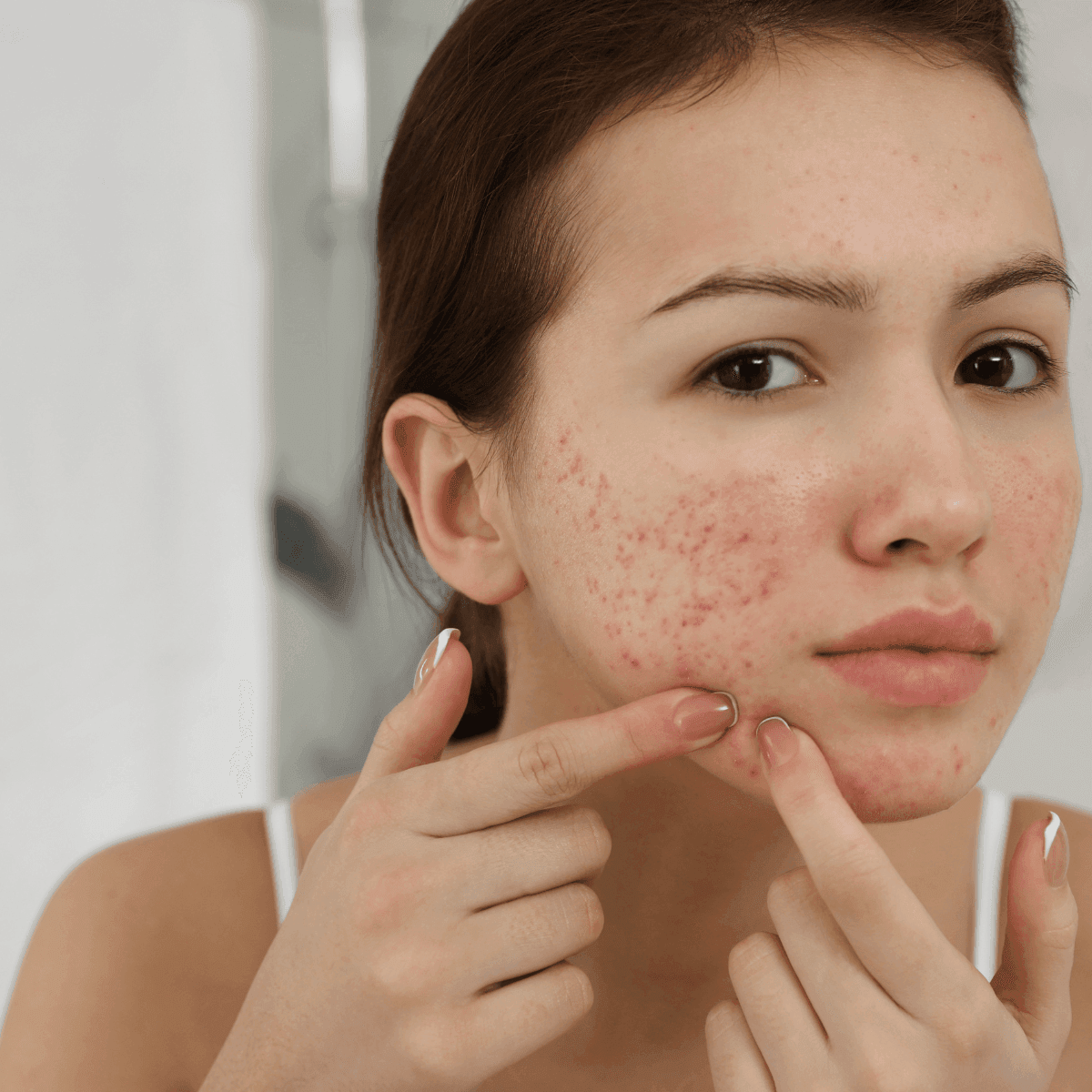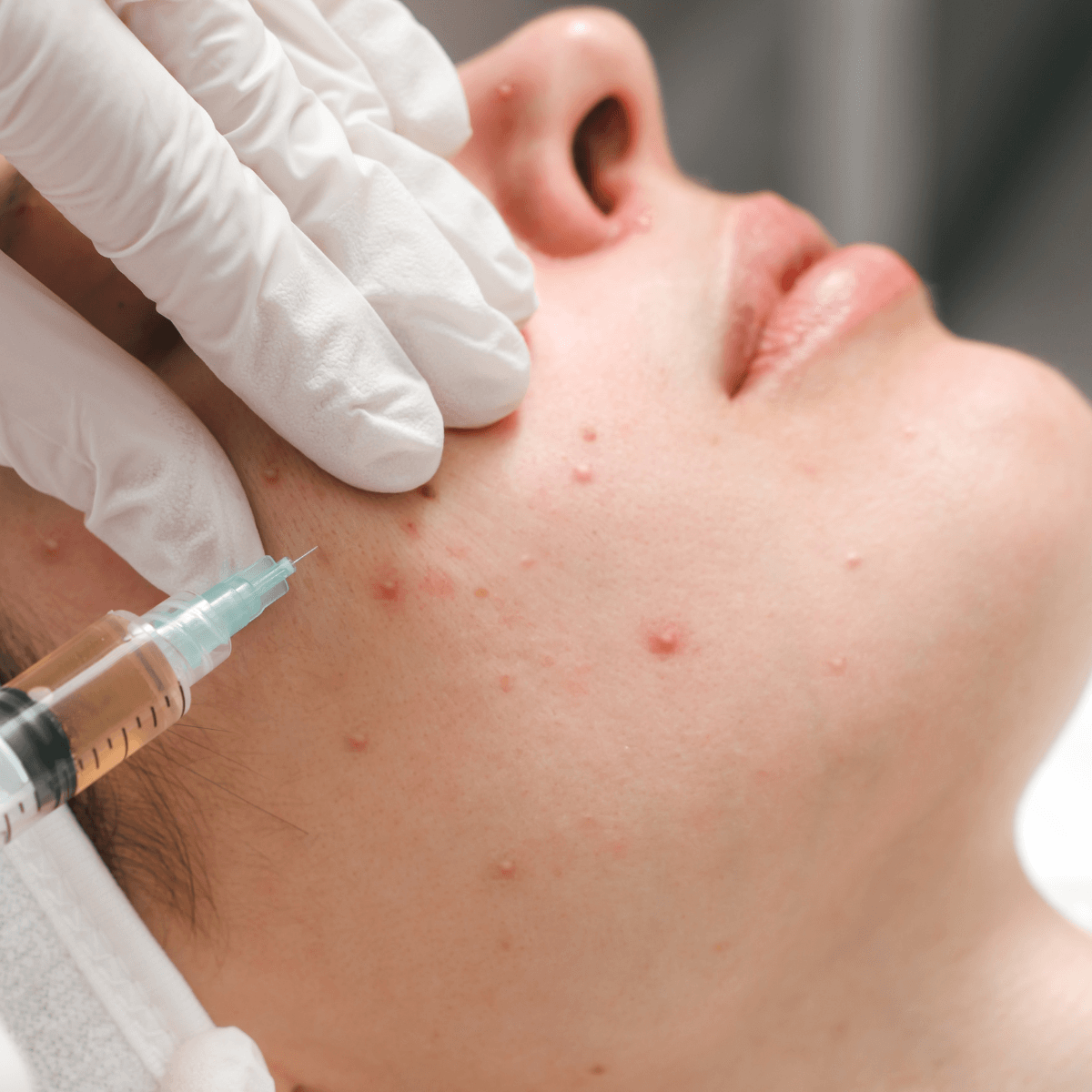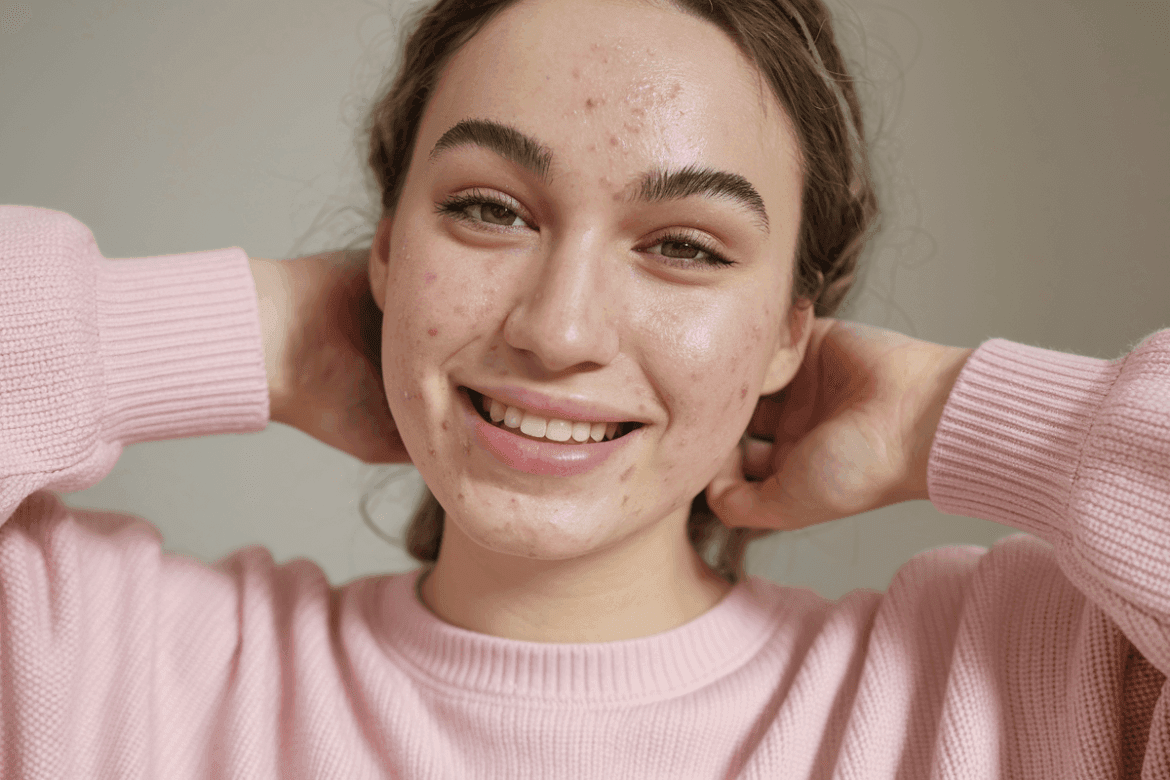Ah, acne – the pesky little villain that pops up uninvited, often at the worst times. Whether it’s a breakout before a big event or a constant battle that feels impossible to win, acne has a way of messing with our confidence. But here’s the good news: acne isn’t an unsolvable mystery. It’s a common condition with known causes, triggers, and treatments. Ready to arm yourself with the knowledge to tackle those breakouts head-on? Let’s dive in!
Contents
What is Acne?
Acne isn’t just a fancy word for pimples. It’s a skin condition that occurs when your hair follicles get clogged with oil and dead skin cells. The result? Whiteheads, blackheads, or those inflamed, painful bumps we all dread.
Did you know there are different types of acne? From whiteheads and blackheads to papules, pustules, nodules, and cysts, each type has its quirks. While mild acne might mean a few clogged pores, severe forms like cystic acne can cause deep, painful blemishes that stick around longer than an awkward first date.

How Does Acne Develop?
Let’s talk about what’s happening beneath your skin. Your sebaceous glands, which produce an oily substance called sebum, sometimes go into overdrive. When this happens, excess oil mixes with dead skin cells and clogs your pores. Add a dash of bacteria and a sprinkle of inflammation, and voilà – you’ve got a breakout.
Hormones also play a starring role in this drama. That’s why acne often strikes during puberty, but it doesn’t stop there. Hormonal changes during pregnancy, menstruation, or even stress can keep those breakouts coming.
What Triggers Acne?
If acne had a checklist, the triggers would be a mile long. Hormones are the big players, but they’re not acting alone. Diet and lifestyle can sneakily contribute to flare-ups – yes, that late-night pizza might be plotting against you. High-glycemic foods, sugary drinks, and even dairy have been linked to acne for some people.
Stress, too, deserves a shout-out. It doesn’t directly cause acne, but it can make your existing breakouts worse. Then there’s the way you treat your skin – using pore-clogging products or skipping the nightly cleanse can send your skin into a tizzy. And let’s not forget about pollution, sweat, and humidity, which can clog pores faster than you can say “skincare routine.”
Who Can Get Acne?
Here’s the thing: acne doesn’t discriminate. While it’s true that teenagers are often hit the hardest thanks to hormonal changes, adults aren’t off the hook. Adult acne, especially hormonal acne in women, is a real thing.
And no, it’s not just a “teenager with oily skin” issue. Dry skin, sensitive skin, combination skin – it doesn’t matter. Acne can affect anyone, regardless of age, gender, or skin type. If you’ve got skin, you’re a potential target.
Can Acne Symptoms Be Managed?
Absolutely! Managing acne starts with understanding your skin. Think of your skincare routine as your first line of defense. Use a gentle cleanser to keep your skin clean without stripping away its natural moisture. Opt for non-comedogenic products (that’s a fancy way of saying “won’t clog pores”) and always, always remove your makeup before bed.
Lifestyle tweaks can help too. Drink plenty of water, get enough sleep, and avoid touching your face. Easier said than done, but worth the effort. While these tips won’t banish acne entirely, they can help reduce the severity of breakouts.

What Treatments Exist for Acne?
When it comes to treatments, you’ve got options – a lot of them.
- Over-the-Counter Heroes: These include benzoyl peroxide (great for killing bacteria), salicylic acid (perfect for unclogging pores), and retinoids (the multitaskers that speed up skin cell turnover).
- Prescription Powerhouses: If your acne is more stubborn, a dermatologist might prescribe topical or oral medications. Antibiotics can reduce inflammation, while hormonal treatments can regulate those pesky hormones. For severe cases, isotretinoin (commonly known as Accutane) might be the answer.
- Professional Procedures: Think chemical peels, laser and light therapies, or microneedling. These are great for tackling acne scars and improving overall skin texture.
And yes, there’s always the option of natural remedies like tea tree oil or aloe vera. Just remember: not everything that’s natural is effective – or safe.
How to Choose the Right Treatment for Your Skin?
The truth is, there’s no one-size-fits-all solution for acne. What works for your best friend might not work for you. That’s why it’s so important to tailor your treatment to your skin type and the severity of your acne.
Consulting a dermatologist is your best bet, especially if over-the-counter products aren’t cutting it. They can help you create a personalized plan that addresses your specific needs. And whatever you do, don’t expect overnight miracles. Acne treatment takes time and patience, so stick with it!
Acne may be a stubborn opponent, but it’s not unbeatable. By understanding what causes it, managing triggers, and exploring the right treatments, you can take control of your skin. Sure, the journey might have a few bumps (pun intended), but with the right care and consistency, you can improve your skin’s health and regain your confidence.
Remember, you’re not alone in this battle, and there’s no shame in seeking help – whether it’s from a dermatologist, a skincare expert, or even just a good friend who gets it. After all, your skin is uniquely yours, and it deserves to be treated with care and compassion.


